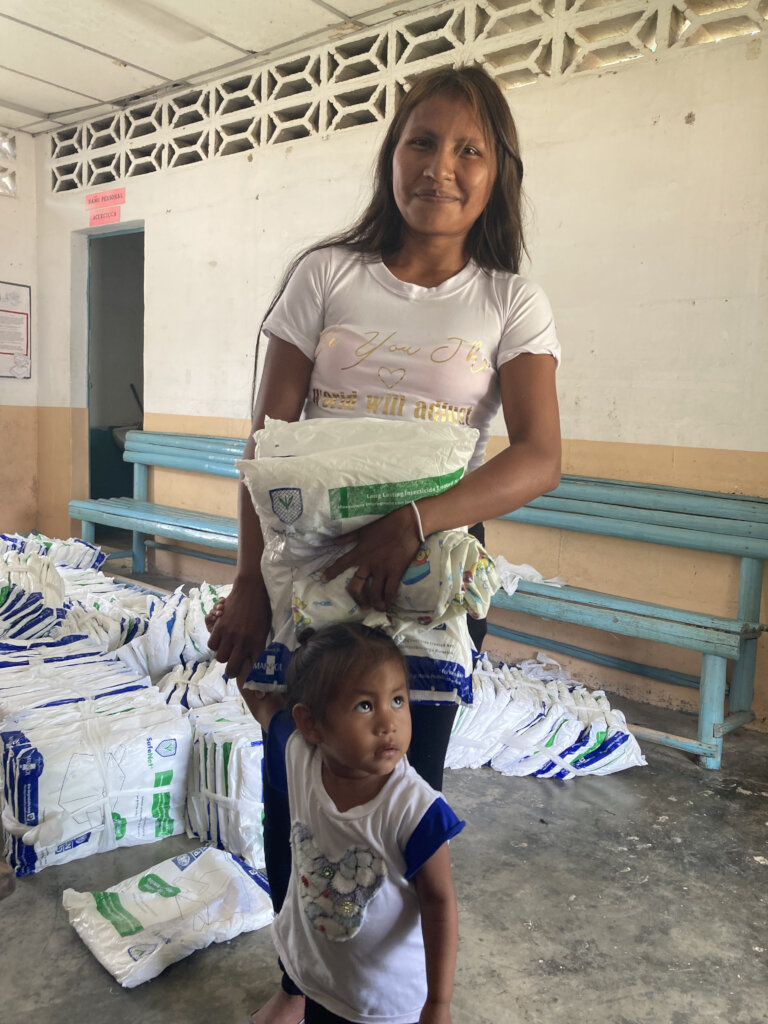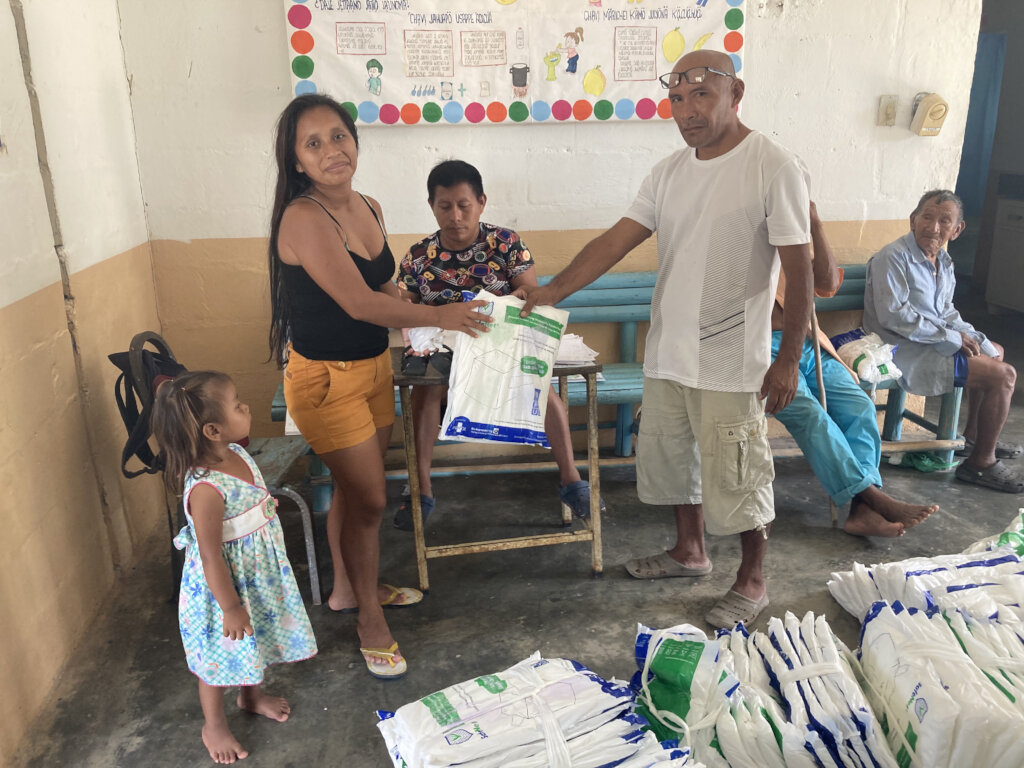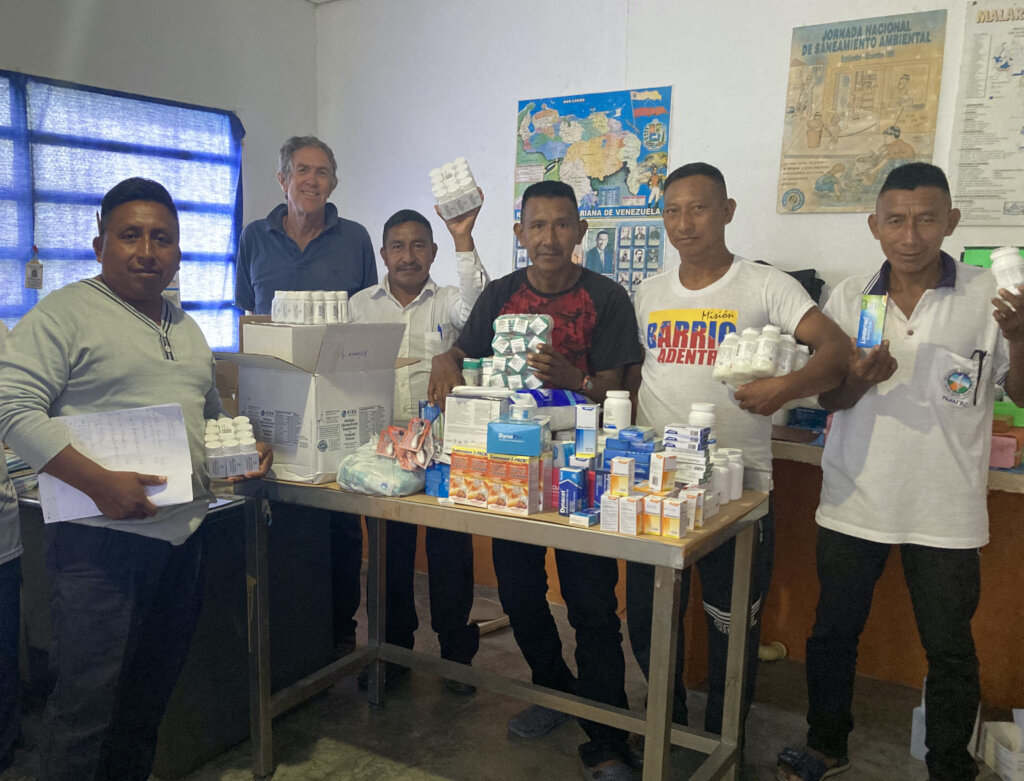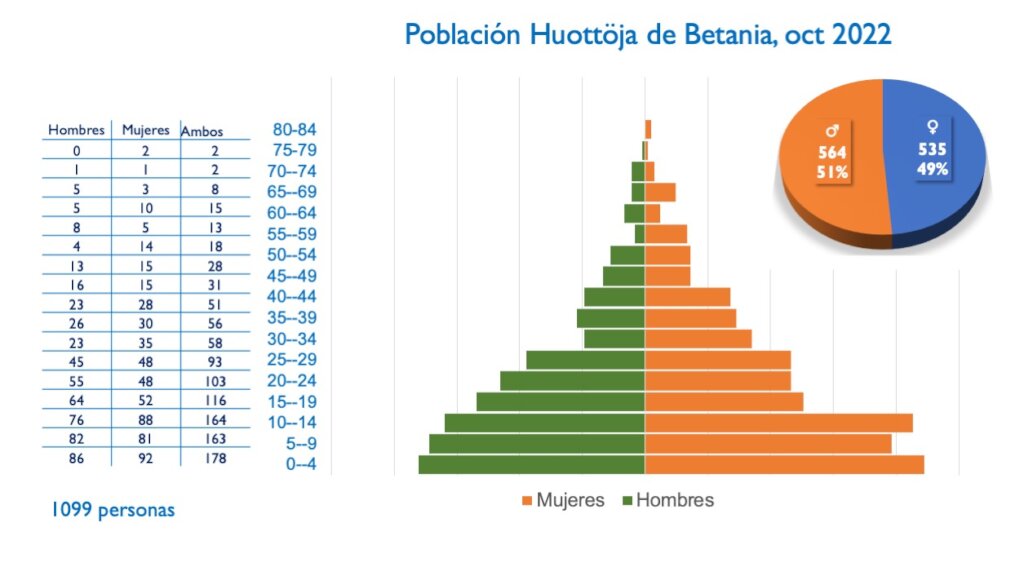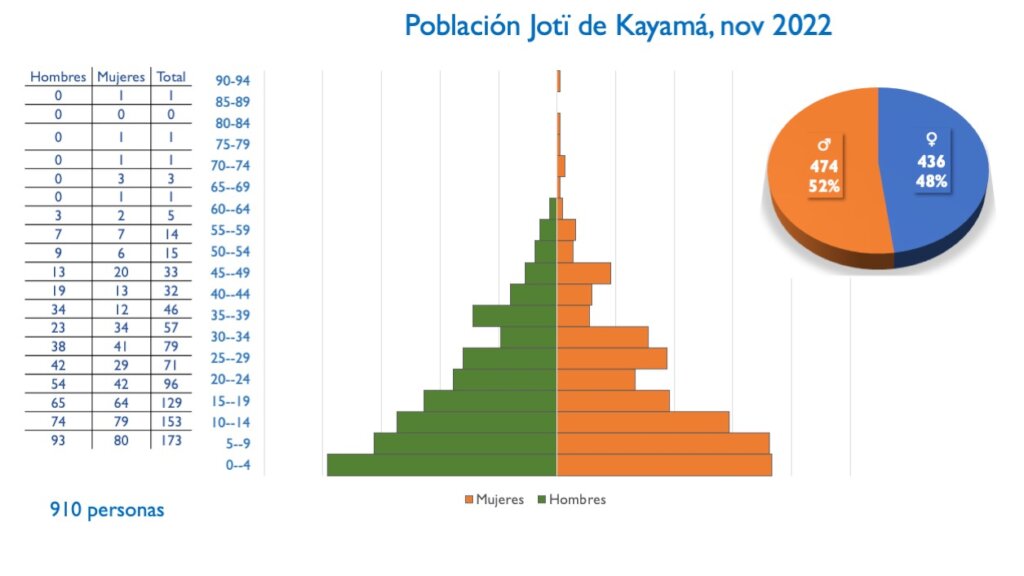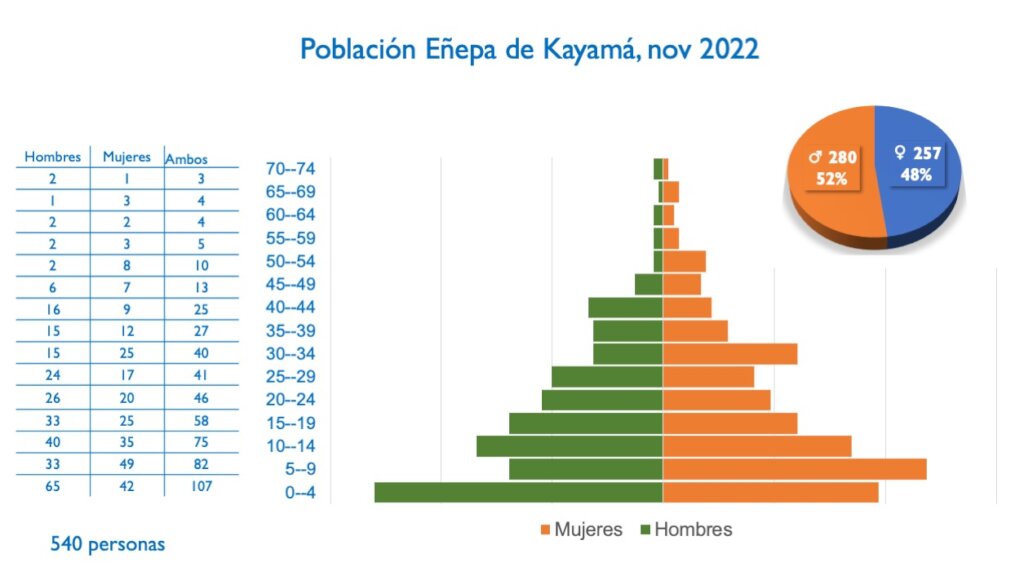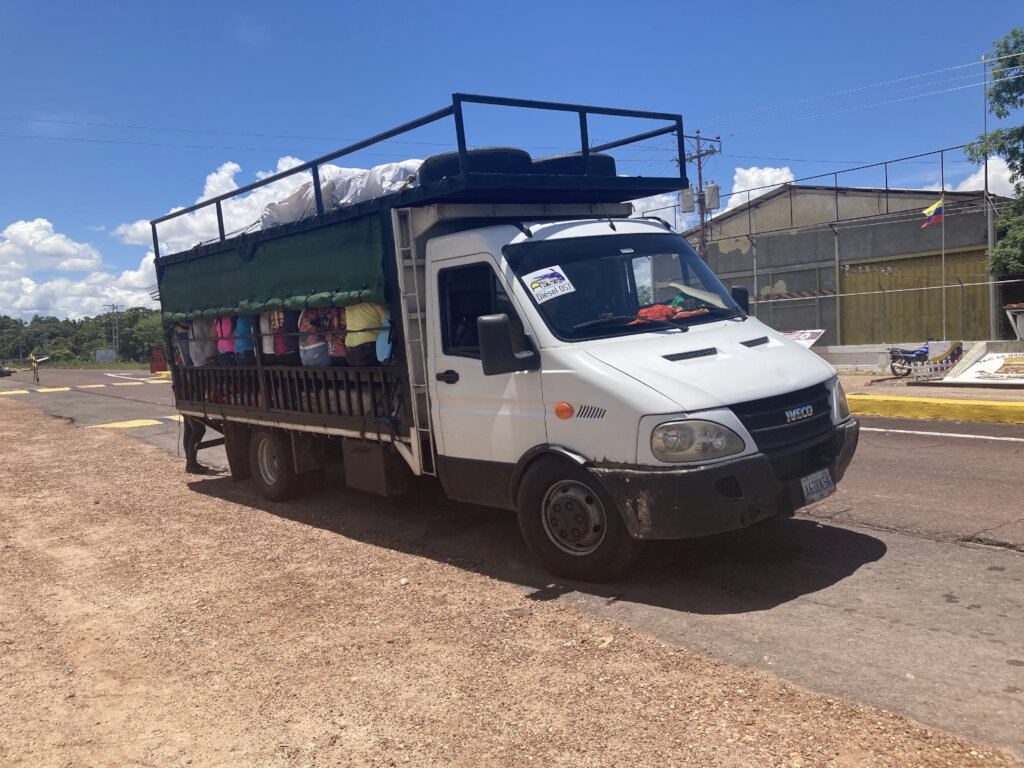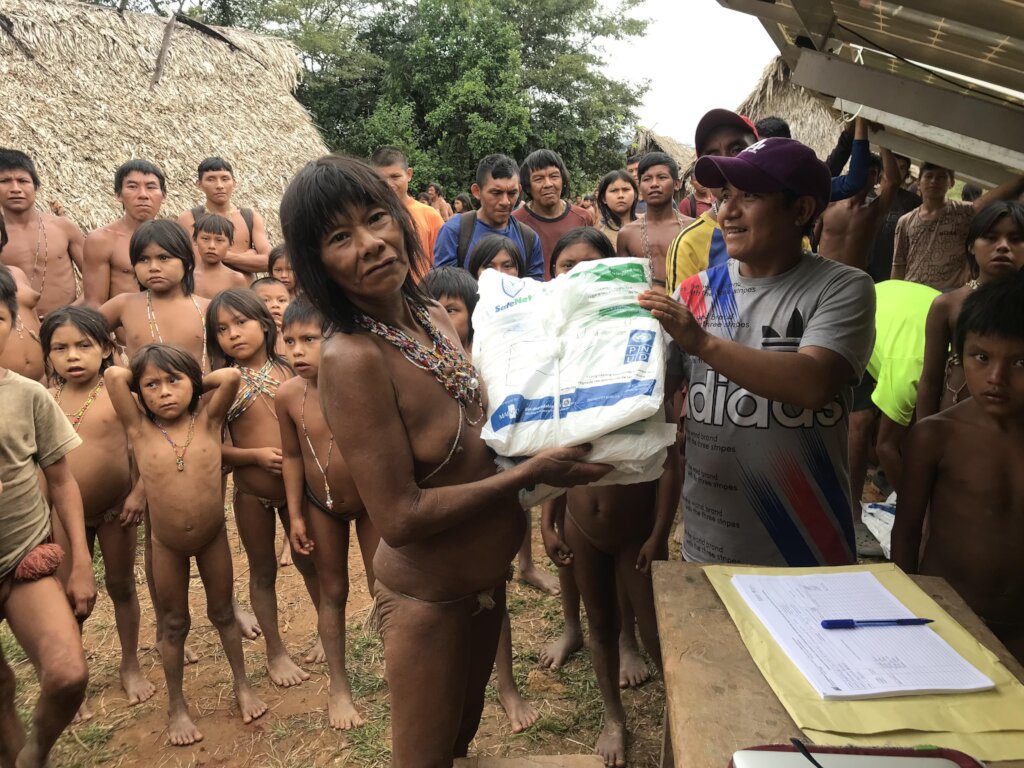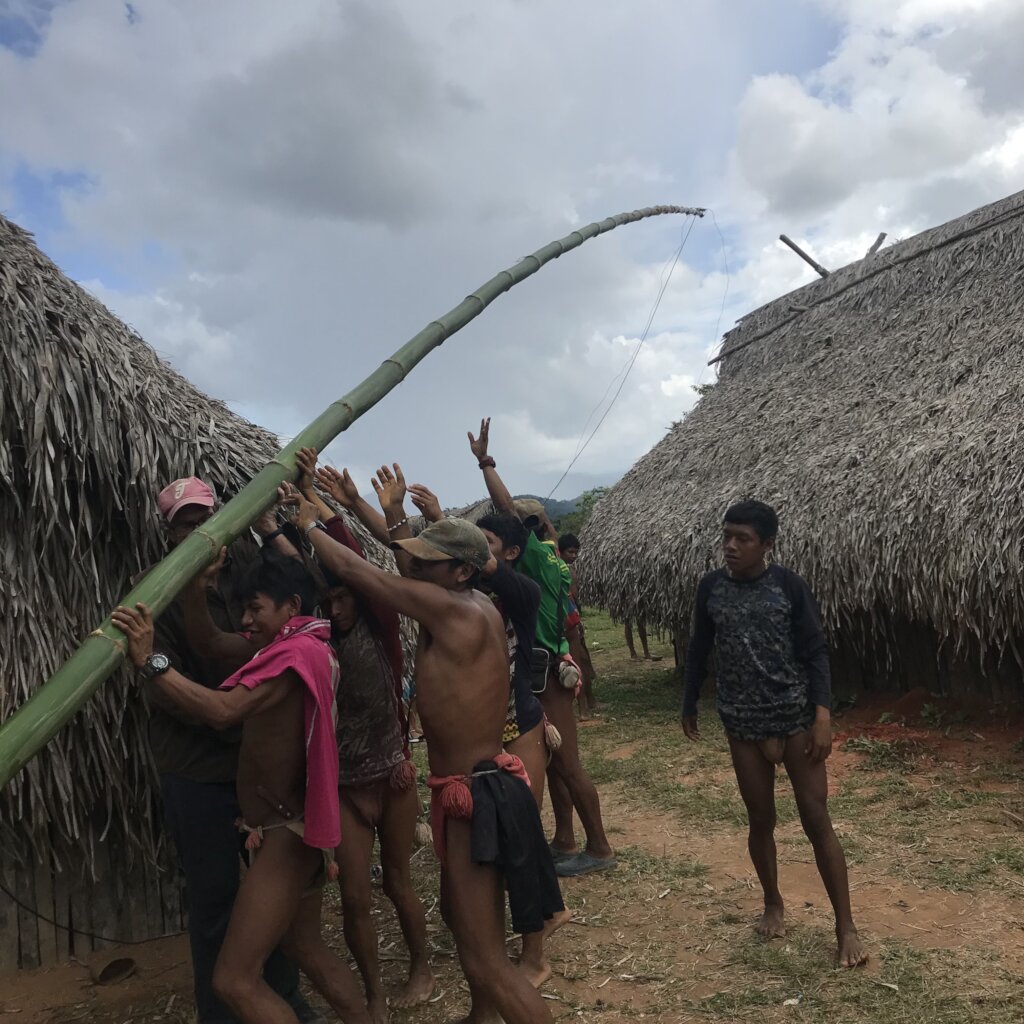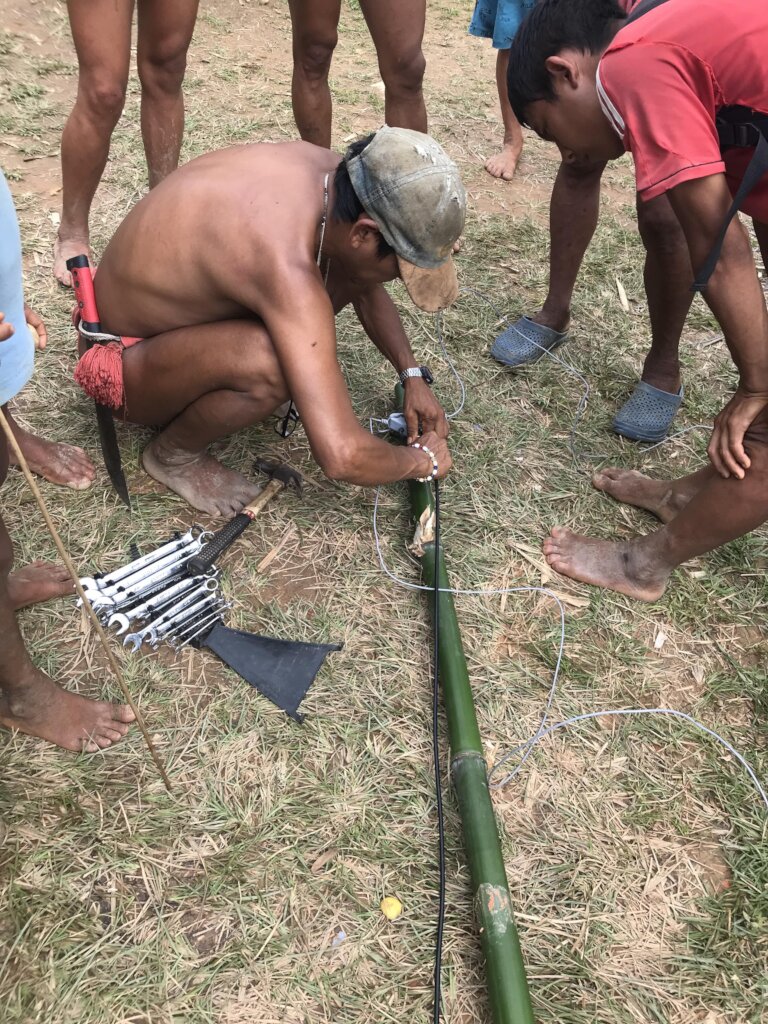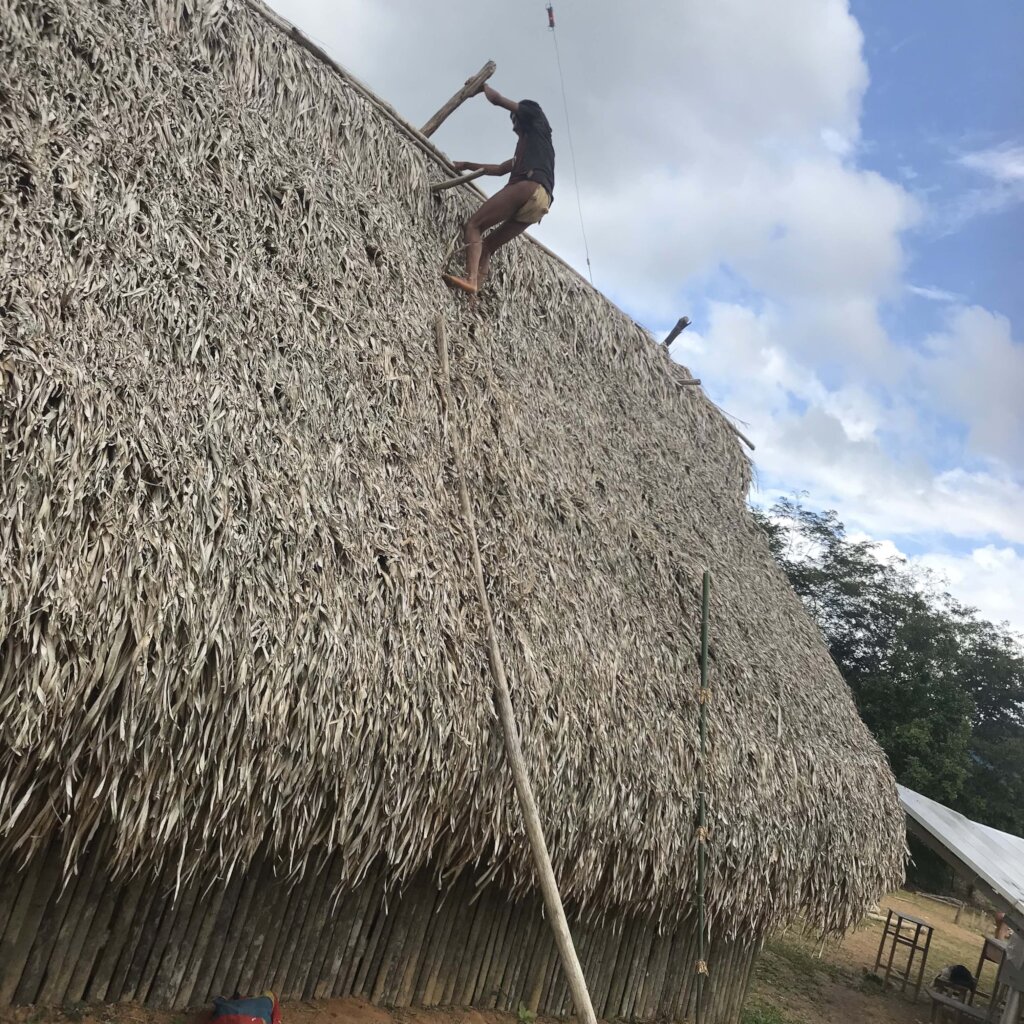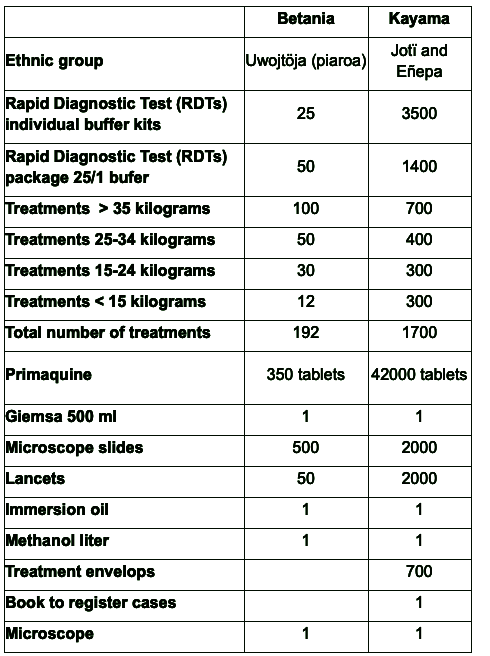By Susannah McCandless | Project Leader
In the last three months, the team visited two out of our three project communities: Betania (Sept-Oct 2022) and Kayama (Oct-Nov 2022)! Following the Pan-American Health Organization strategy to reduce or even eradicate malaria, we committed to developing the best possible understanding of population demography, distribution and movement. We elaborated a detailed population census of both communities (see images of population pyramids, below), and linked malarial prevention and tracking efforts with community sectors (the equivalent of a neighborhood, or census block). We continued training on use of the RDTs, portable diagnostic and treatment kits for malaria. We translated all the steps for self-diagnosis into Jotï, Eñepa and Piaroa, the three Indigenous languages, and compiled them in a sort of brochure with pictures and drawings. We also made videos in the three Indigenous languages, requesting that each community's malariologist, or malaria prevention and treatment personnel, explain the self-diagnosis steps, materials and process, as well as the treatments.
We were able to accomplish a lot more, besides. You can help us to accomplish even more, as we head back into the third project community this week! Your donation to the project on Giving Tuesday, November 29th, will receive matching funds from GlobalGiving. But enough about that--we have so much more to tell you!
We are very content with the results of our recent work, including the distribution of 2,500 mosquito nets (LLINs, long-lasting insecticidal nets); 3,525 Rapid Diagnostic Test (RDTs) individual buffer kits; 1,450 Rapid Diagnostic Test (RDTs) packages, enough treatments according to current morbidity and mortality (0), and many more items needed to address malaria, as the table below shows! Our project has had a very positive impact, according not just to the figures above, but also to the testimony of the Indigenous people who recognize how the cases have been reduced since we started. They are seeing significant reduction in morbidity (people becoming ill from malaria) and mortality, the latter reduced to zero. The greater availability of treatment is also recognized. A nurse in Kayama got malaria shortly after we returned to the city. She messaged us using the new communications device we'd left for community medical use, and told us, “Shoot, I have malaria, but thanks to you, I also have a diagnostic and treatment kit!”
We donated two microscopes (see the picture of the Eñepa nurse receiving it, below), and a critical assortment of medicines for all the prevalent ailments in both communities. The medicines have been deeply appreciated, since from the beginning of the pandemic until now they are the only ones that have arrived to the community clinic (ambulatories; see the picture of appreciative people in the community of Betania).
As part of our effort to help the people to fight malaria, we helped Kayama to install a communication system, acquiring a radio transmission with its corresponding antenna and 100 ft of coaxial cable, along with an InReach satellite communications device paired with a cell phone. That equipment allows us now to know the incidence of malaria with precise numbers each month (see the pictures of installing the antenna). We also donated a new laptop to allow the malariologist in charge to maintain a proper record and be more able to properly communicate the reports, maintain an updated census, and overall support the needs of the community with more modern technology.
We keep learning the amazing sharing ethics so engrained in these communities: we took about 9 pairs of reading glasses, and in a community meeting the nurse decide to distribute them among the most in need. I grabbed a pair and gave it to a good friend who I knew needed it, but he returned to me right away saying: "I will wait until all that are in need have one pair if there is one left, I can take it!" Sharing is central for survival: food and laughter, ailments and sadness, pain and work are equally shared.
Thanks!
Project reports on GlobalGiving are posted directly to globalgiving.org by Project Leaders as they are completed, generally every 3-4 months. To protect the integrity of these documents, GlobalGiving does not alter them; therefore you may find some language or formatting issues.
If you donate to this project or have donated to this project, you can receive an email when this project posts a report. You can also subscribe for reports without donating.
Support this important cause by creating a personalized fundraising page.
Start a Fundraiser